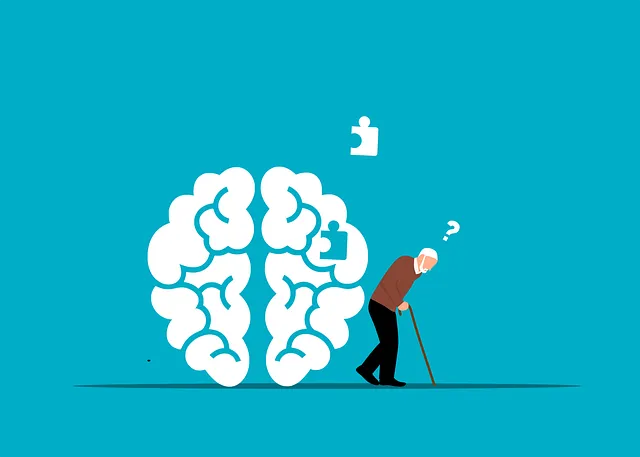Kaiser's Inpatient Mental Health services in Parker provide a structured, personalized approach to treating severe conditions, focusing on emotion regulation techniques. Through tailored programs, self-care education, and evidence-based care, patients gain skills for stress management, mindfulness, and cognitive reframing, fostering resilience and improving well-being. This holistic approach combines intensive inpatient care with community-based reinforcement, ensuring comprehensive recovery and long-term mental wellness.
Emotion regulation techniques are essential tools for maintaining mental well-being. This comprehensive overview delves into various strategies, focusing on how Kaiser’s inpatient mental health services utilize these skills. We explore what to expect during hospitalization and examine effective teaching techniques for emotional balance. Additionally, we highlight Parker’s approach, which seamlessly integrates inpatient care with long-term skill development. Discover how these methods empower individuals to manage emotions effectively.
- Understanding Emotion Regulation Techniques: A Comprehensive Overview
- Kaiser's Inpatient Mental Health Services: What to Expect
- Teaching Techniques: Effective Strategies for Emotional Well-being
- Parker's Approach: Integrating Inpatient Care with Long-term Skill Development
Understanding Emotion Regulation Techniques: A Comprehensive Overview

Emotion regulation techniques are essential tools for managing and understanding one’s internal states. It involves recognizing, accepting, and responding to emotions in a healthy way, which can significantly impact overall well-being. These techniques are particularly relevant for individuals seeking better mental health, as they offer a proactive approach to navigate life’s challenges.
At Kaiser, inpatient mental health services play a crucial role in teaching these skills, especially through tailored programs designed to address specific emotional needs. The process often begins with self-care routine development, emphasizing the importance of daily practices for stress management. By incorporating activities like mindfulness exercises and healthy habits, individuals gain a sense of control over their emotions. Mental health education programs within Kaiser are meticulously crafted to empower patients, providing them with the knowledge and skills to recognize triggers, cope effectively, and ultimately improve their emotional resilience.
Kaiser's Inpatient Mental Health Services: What to Expect

Kaiser’s Inpatient Mental Health Services offer a comprehensive approach to treating severe mental health conditions. If you’re seeking care at a Kaiser facility, understand that their services are designed to be highly structured and tailored to individual needs. The process begins with an initial risk assessment, which helps determine the severity of your condition and guides treatment planning. This evaluation is crucial for patients entering inpatient care, as it ensures appropriate placement and resource allocation.
During your stay, you can expect a multidisciplinary team of mental health professionals who collaborate on your care. This includes psychiatrists, psychologists, social workers, and nurses specializing in various therapeutic modalities. They employ evidence-based practices and may incorporate resilience-building techniques to empower patients in managing their emotions. The focus is on providing intensive support while also educating individuals about self-care strategies for sustained recovery after discharge.
Teaching Techniques: Effective Strategies for Emotional Well-being

Teaching effective emotion regulation techniques is a powerful tool for promoting emotional well-being in individuals, especially those navigating mental health challenges. At Kaiser, renowned for its inpatient mental health services, including the Parker campus, educators employ innovative strategies to empower patients with coping mechanisms. These methods go beyond traditional therapy, delving into practical, everyday techniques that foster self-awareness and resilience.
One such strategy is mindfulness training, which encourages individuals to focus on the present moment, thereby reducing anxiety and stress. Additionally, cognitive reframing teaches individuals to challenge negative thought patterns, promoting a more positive outlook. For mental health professionals, integrating these techniques into therapy sessions not only enhances patient outcomes but also serves as an effective risk management planning tool, potentially mitigating burnout prevention concerns.
Parker's Approach: Integrating Inpatient Care with Long-term Skill Development

At Kaiser, a leading healthcare provider, Parker’s Approach to emotion regulation techniques teaching integrates inpatient care with long-term skill development. This holistic method recognizes that addressing mental health issues requires both immediate support and sustained coping mechanisms. During inpatient stays, patients engage in therapeutic activities designed to help them understand and manage their emotions effectively. These sessions focus on building self-awareness, cultivating positive thinking, and employing empathy-building strategies.
After discharge, the learning continues with structured programs aimed at reinforcing these skills in real-life settings. By seamlessly transitioning from inpatient care to community-based support, Kaiser ensures that patients receive comprehensive treatment tailored to their unique needs. This approach not only facilitates short-term recovery but also empowers individuals to maintain mental wellness over the long term.
Emotion regulation techniques, as discussed in this article, offer a comprehensive framework for managing and understanding emotional well-being. Kaiser’s inpatient mental health services provide a critical foundation, while Parker’s approach emphasizes integrating care with long-term skill development. By employing effective teaching strategies outlined here, individuals can gain valuable tools to navigate their emotional landscape. Whether one turns to Kaiser for inpatient support or explores Parker’s methods, mastering emotion regulation is a transformative journey that empowers personal growth and resilience.






